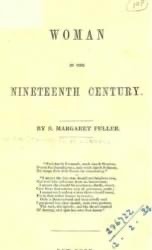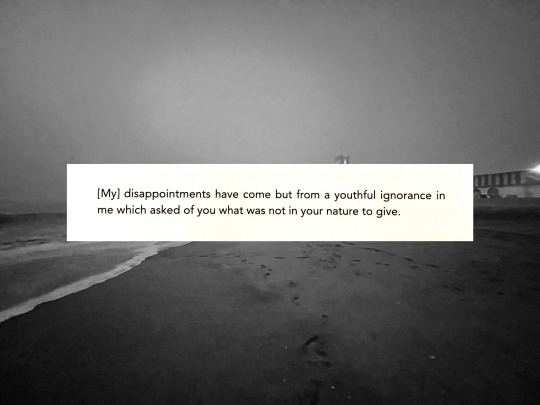#Margaret Fuller
Quote
Genius will live and thrive without training, but it does not the less reward the watering-pot and pruning-knife.
Margaret Fuller, "Life of Sir James Mackintosh", Papers on Literature and Art
25 notes
·
View notes
Text
Headlines and Perspectives - One shot
Dr. Two Brains blood chilled when he saw what was printed on the morning edition of the Fair City Times. Guilt, torment, and anger coursed through his body. How dare the called her that! Becky wasn't anything like that monster! It wasn't her fault that Miss Crimes was making her commit all that violence and bloodshed. Two Brains let out a sigh, releasing his anger as he noticed how his hands were beginning to crumple and tear up the newspaper. "Besides. The only reason she is dealing with all of this is because of me." Dr. Two Brains mumbled in a guilty tone. He knew this headline will only make people's fear of Miss Crimes even worse. He had to finish the cure quickly before it would be too late.
Victor frowned as he silently read the newspaper. Unwanted memories were coming back as he gazed over the words and the information about Miss Crimes printed in the article. "So now you see why I need you on this case Agent Cutter." Margaret spoke in a serious tone to the man as they were both seated in her office at The Agency. Victor let out a sigh. He had done cases like this before, but things were different this time. "She is still a child ma'm." Victor responded, his face bearing an slightly anguished expression. Margaret Fuller's gazed at Victor with a sympathetic look despite still bearing a hardened and serious expression. "I know but we can't have her running around and killing innocent lives anymore. For now I want you to find out more information on Miss Crimes such as he origins, powers, and weaknesses. If there is a way to contain her then do it. If not..." Margaret paused. Victor just grimly nodded. She didn't have to finish that command. Victor knew if he couldn't capture Miss Crimes, then he would have to end her life.
Darius smirked with intrigue as he sat in his office. The newspaper from one of his associates who was situated in Fair City looked very promising. He then pressed a button on a device with a speaker. "Miss Lears, please bring in the contact information of Dr. Calvin Barriton and Professor Athena Cartwright to my desk immediately." Darius commanded. "Right away Mr. Brewster." A voice responded. Darius smiled wickedly and went back to reading his paper. "It looks like B.E.A.W labs might get a new bioweapon soon, or some scientists might get a chance to test out their weapons on Miss Crimes. Whichever comes first." Darius mused to himself as he drank his coffee.
Archie Webber had a fierce and determined expression as he packed his hero gear up. Dr. Arannae was ready and willing to bring this Miss Crimes to justice. She was going to pay for killing his best friend Jenkins and for crushing Joe's heart. The poor man had called Archie and through tears and anguish told him what happened to Dr. James Jenkins. How Jenkins' mangled remains were found in his lab along with destroyed equipment. Joe had also told him about what was printed in today's newspaper concerning Miss Crimes. "That girl's murderous crime spree ends now." Archie growled as he headed out the door with his gear in tow. His pet spider Fluffy safe at his mom's house. Archie didn't want to imagine what would happen if Miss Crimes got her fiendish claws on his sweet boy.
Fair City Times Headline
Miss Crimes: Fair City’s Next Maddrix the Malicious
@melodythebunny
@erraticeris
#wordgirl#wordgirl au#the strange case of wordgirl and miss crimes#dr two brains#dr archie webber#fluffy#dr james jenkins#joseph joe smith#professor athena cartwright#dr calvin barriton#victor boxleitner#margaret fuller#the agency#B.E.A.W labs#the last superheroes au#tw: violence#tw: blood#tw: character death#maddrix the malicious#darius brewster
7 notes
·
View notes
Text
But early I perceived that men never, in any extreme of despair, wished to be women. Where they admired any woman they were inclined to speak of her as above her sex. Silently I observed this, and feared it argued a rooted skepticism, which for ages had been fastening on the heart, and which only an age of miracles could eradicate.
Ever I have been treated with great sincerity; and I look upon it as a most signal instance of this, that an intimate friend of the other sex said in a fervent moment, that I deserved in some star to be a man. Another used as highest praise, in speaking of a character in literature, the words "a manly woman."
It is well known that of every strong woman they say she has a masculine mind.
This by no means argues a willing want of generosity towards woman. Man is as generous towards her, as he knows how to be.
Wherever she has herself arisen in national or private history, and nobly shone forth in any ideal of excellence, men have received her, not only willingly, but with triumph. Their encomiums indeed are always in some sense mortifying, they show too much surprise.
-Margaret Fuller, ‘The Great Lawsuit’, in Alice S. Rossi, The Feminist Papers: From Adams to de Beauvoir
11 notes
·
View notes
Text

#philosophy#quotes#Margaret Fuller#Memoirs of Margaret Fuller Ossoli#Fuller#life#growth#progress#change#development#goals
7 notes
·
View notes
Quote
If you have knowledge, let others light their candles in it.
- Margaret Fuller
44 notes
·
View notes
Text


But if you ask me what offices they may fill, I reply—any. I do not care what case you put; let them be sea-captains, if you will. I do not doubt there are women well fitted for such an office... I think women need, especially at this juncture, a much greater range of occupation than they have, to rouse their latent powers. In families that I know, some little girls like to saw wood, others to use carpenters’ tools. Where these tastes are indulged, cheerfulness and good-humor are promoted. Where they are forbidden, because “such things are not proper for girls,” they grow sullen and mischievous.
—Margaret Fuller, Women in the Nineteenth Century (1845)
[Robert Scott Horton]
#quotes#Margaret Fuller#Robert Scott Horton#women#women's rights#history#women's history#women in the nineteenth century
4 notes
·
View notes
Note
Why is the general public, and particularly the "fiction teaches empathy" crowd, so fkn callous when it comes to the deaths of anyone with savings that exceed four or five figures lol. Do you have any insights, or are there any passages in literature or criticism that shed light
I can give the general public a pass—I can even understand a little populist schadenfreude, hailing as I do from the populace—but figures who purport to represent, to lead, or to revolutionize the people (artists, socialists) should hold themselves to a higher standard of public bearing. Not even in a sentimental "you have to love everybody" way, but in the sense of at least showing enough self-command not to display undignified, petulant, and unworthy emotions, such as glee at some effectively innocent stranger's death.
The standard reading in the canon on the subject would be Nietzsche's Genealogy of Morals, an analysis, applicable to secular creeds like socialism, of Christianity's compassion for the weak as a flimsy cover for aggression against the strong.
Faith in what? Love of what? Hope for what? – These weaklings – in fact they, too, want to be the powerful one day, this is beyond doubt, one day their ‘kingdom’ will come too – ‘the kingdom of God’ simpliciter is their name for it, as I said: they are so humble about everything! Just to experience that, you need to live long, well beyond death, – yes, you need eternal life in order to be able to gain eternal recompense in ‘the kingdom of God’ for that life on earth ‘in faith’, ‘in love’, ‘in hope’. Recompense for what? Recompense through what? . . . It seems to me that Dante made a gross error when, with awe-inspiring naïvety he placed the inscription over the gateway to his hell: ‘Eternal love created me as well’: – at any rate, this inscription would have a better claim to stand over the gateway to Christian Paradise and its ‘eternal bliss’: ‘Eternal hate created me as well’ – assuming that a true statement can be placed above the gateway to a lie! For what is the bliss of this Paradise? . . . We might have guessed already; but it is better to be expressly shown it by no less an authority in such matters than Thomas Aquinas, the great teacher and saint. ‘Beati in regno coelesti’, he says as meekly as a lamb, ‘videbunt poenas damnatorum, ut beatitudo illis magis complaceat.’ [The blessed in the heavenly kingdom will see the torment of the damned so that they may even more thoroughly enjoy their blessedness.] (Trans. Carol Diethe)
You don't have to share Nietzsche's aristocratic apologia for the strong or his belligerence against Judaism and Christianity to see how a self-styled compassion whose actual content is aggression can go wrong in all sorts of ways, including for this compassion's ostensible objects.
We had a higher caliber of radical in the 19th century, when the early feminist Margaret Fuller, whom Nietzsche would have hated but whom Nietzsche's beloved Emerson loved, wrote,
Those who would reform the world must show that they do not speak in the heat of wild impulse; their lives must be unstained by passionate error; they must be severe lawgivers to themselves.
5 notes
·
View notes
Text

2 notes
·
View notes
Text
"A house is no home unless it contains food and fire for the mind as well as the body."
Margaret Fuller, author, critic, and women's rights advocate (23 May 1810-1850)
2 notes
·
View notes
Text

Today a reader, tomorrow a leader.
Margaret Fuller
2 notes
·
View notes
Quote
The better part of wisdom is a sublime prudence, a pure and patient truth that will receive nothing it is not sure it can permanently lay to heart.
Margaret Fuller, Summer On The Lakes, in 1843
112 notes
·
View notes
Text
Margaret Fuller: Knowledge
“If you have knowledge, let others light their candles in it.”
—Margaret Fuller, author.
View On WordPress
0 notes
Text
From the moment of her untimely death and the decision to publish her Memoirs the process of misrepresenting Margaret Fuller began. Whereas during her lifetime Margaret Fuller was known as both an intellectual woman and a woman of personal magnetism and charm, after her death in what appears to be a fairly consistent pattern for the construction of images of women who have been visible and who have been accorded some status, her personality, and not her intellectual accomplishment, became the focus of attention on her. But emphasising personal qualities at the expense of intellectual ones is not the only bias apparent in the representation of Margaret Fuller, or for that matter, any other woman of comparable note. A particular personal profile, which may bear little resemblance to the reality of the woman's life but which proves to be productive in patriarchal terms, frequently emerges.
In the case of Margaret Fuller, it was the Memoirs of Margaret Fuller Ossoli published in 1852 and edited by such reputable men of intellectual stature as Ralph Waldo Emerson, William Henry Channing and James Freeman Clarke, which began the printed distortion of her personality. As Urbanski says, ‘This work became the literary canon that established Margaret Fuller as an "arrogant old maid", aggressive and ugly, the archetypal feminist whose need for attention was channeled into the feminist movement. In fact’, she adds, ‘this depiction of Fuller established the feminist archetype that remains today’ (1980, p. 4).
Margaret Fuller's life has been the subject of many books and biographies, and the Memoirs, edited so soon after her death by men of distinction who knew her, has usually been accepted as an authoritative source. The emphasis and values inherent in it have been built upon, elaborated and amplified by subsequent scholars without necessarily being questioned. But the pattern which the editors set for the interpretation of Margaret Fuller was one in which her conversational ability was prominent, and one in which her writing - where included - concentrated on her literary rather than her social criticism; little attention is paid to her feminism or to Woman in the Nineteenth Century. Unfortunately, says Urbanski, the editors did not merely publish Margaret Fuller's letters and journals; they used their position as gatekeepers not just to select, but to change, her writing. They constructed an image of Fuller that does not have its origins in her work or her life. A comparison between the accounts in the Memoirs and the original documents reveals not only that much of the material was ‘destroyed and defaced’ by the editors, but that they ‘also rewrote Fuller's work, changing her writing style’ (ibid., p. 5, my emphasis).
And if this isn't enough, let it be noted that they then criticised that writing style!
-Dale Spender, Women of Ideas and What Men Have Done to Them
19 notes
·
View notes
Text

24 notes
·
View notes
Video
youtube
Margaret Fuller (1810–1850) | TOP 150 Women That CHANGED THE WORLD | Short Biography
Subscribe to MrViralStar : https://www.youtube.com/@MrViralstar?sub_confirmation=1
🌟 Welcome to our channel, where we celebrate the remarkable achievements of women who have changed the world! 🎉 Join us as we embark on an inspiring journey through history to honor the legacies of the top 150 most famous women who have left an indelible mark on society.🌟
Join us as we celebrate the achievements of these extraordinary women and honor their enduring legacy. Don't forget to like, share, and subscribe to our channel for more inspiring content celebrating the diversity and resilience of the human spirit. Thank you for joining us on this journey of discovery and empowerment! 🌟💪👩🔬🎨
0 notes
Text
oggi, 5 maggio, a roma: "resistenze romane" @ casale dei cedrati
RESISTENZE ROMANE
Monteverdelegge collabora con il Casale dei Cedrati al primo incontro della rassegna “Resistenze romane” che si terrà domenica 5 maggio, alle ore 11:30 al Casale dei Cedrati. L’incontro con Stella Sofri sarà moderato da Maria Teresa Carbone per MVL sul tema: 1849. Fratelli d’Europa. Gli stranieri che difesero la Repubblica Romana. Con letture dalle lettere di Margaret Fuller a…
View On WordPress
#1849#Brunella Diddi#Margaret Fuller#Maria Teresa Carbone#monteverdelegge#MVL#Patrizia Zappa Mulas#Repubblica Romana#Resistenze romane#Stella Sofri#The Tribune
0 notes